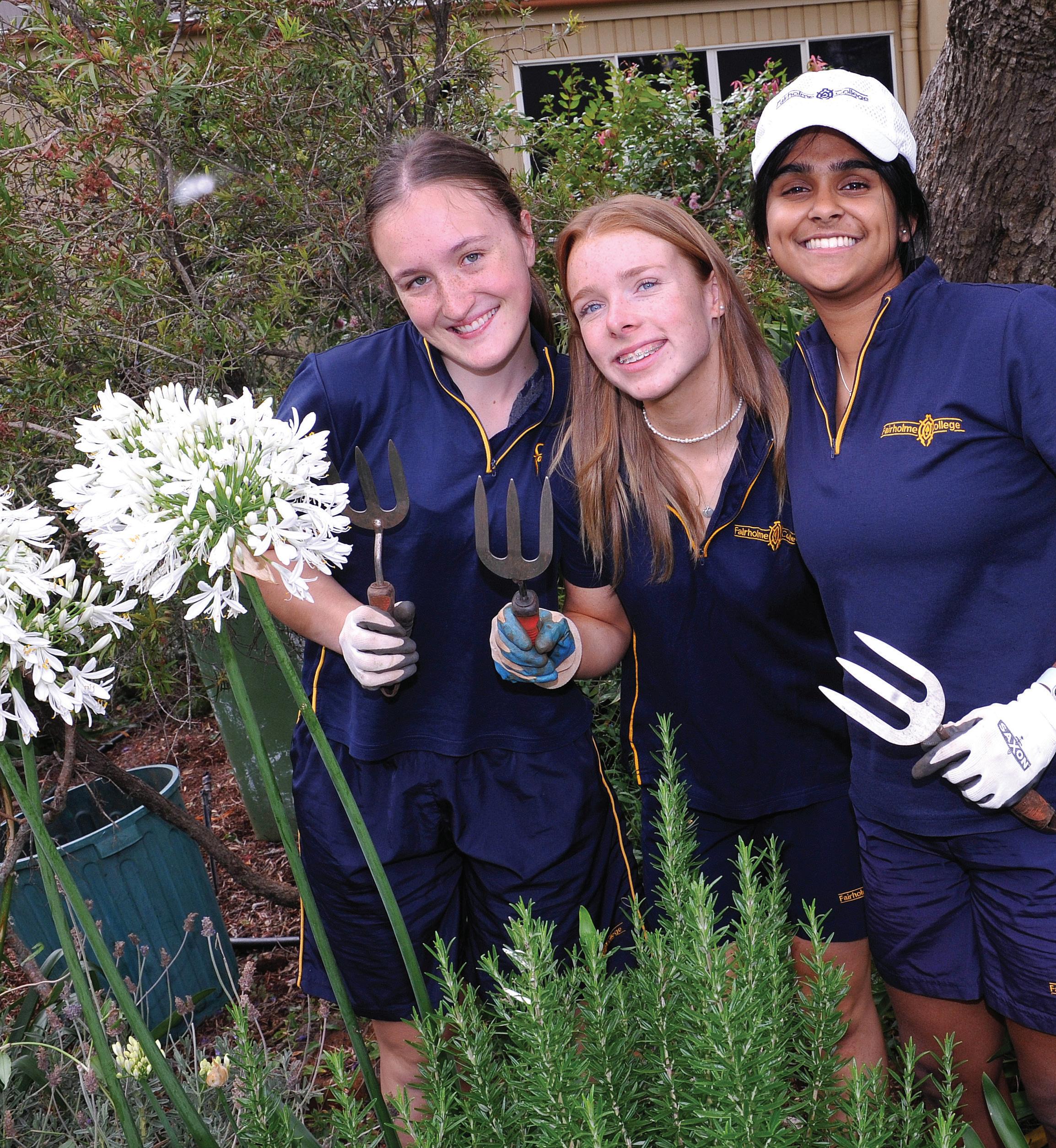ATHolme





For a long time to come, COVID 19 will be a term deeply embedded in our psyche – to ignore its somewhat insidious shadow would be naïve and short-sighted.
Three years of life and of schooling have been disrupted and affected – adversely and positively –the balance is not even for all.
Whilst we can focus on the periods of lockdown and online learning, cancellations, and reconfiguration of events as troublesome, of greater note has been the change to relationships.
Physical distancing, a cultivated on-line world and isolation due to illness have invariably impacted connectedness.
And because ‘belonging and connectedness are well known protective factors for student wellbeing’, (McLean in Henebery, 2021), it is unsurprising to note heightened rates of anxiety, depression, and school refusal across not just Australia but the world. The COVID-19 pandemic forced 190 countries to
close schools, with an impact to the education of 1.6 billion students (United Nations, 2020).
According to ACARA’s National Report on Schooling data portal, the 2022 national attendance rate fell to an average of 86.5% from 90.9%.
Fairholme students’ attendance correspondingly dropped to the 90% mark last year, having typically been steady at the 95% marker, for years.
Invariably, part of the decline resulted from our required view of the management of illness and particularly, the mandatory isolation periods that were associated with COVID 19.
But there is more than that – there is evidence of a slow leaching of attendance across schools across the globe over the past three years; Fairholme is not immune.
‘She’s having a mental health day,’ has become part of the vernacular and a view that staying at home to study allows for greater learning has become a truism for some.
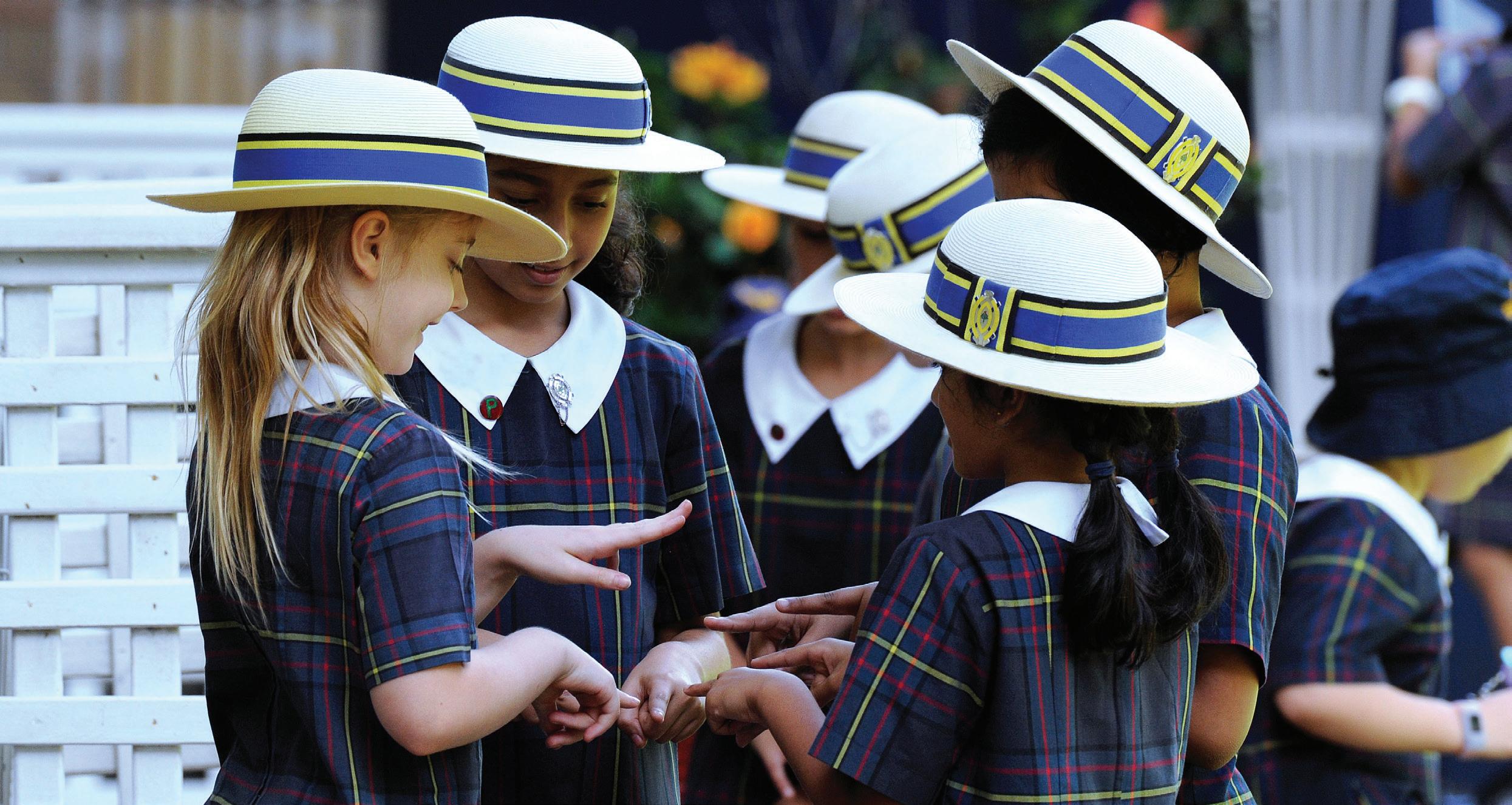
Data tells us otherwise.
Studies show that students who refuse school or those who attend sporadically, are more likely to ‘experience poor life outcomes, including lower employment prospects, issues maintaining social relationships and mental health challenge’s. (Henebery, 2021). Whilst we understand the genuine needs around mental health care, we also know that opting in [to school] matters more than ever before. Community involvement, according to Mihalec-Adkins & Cooley (2020) correlates with student success. Further, attaining competence with social skills is an underpinning for maximisation of academic outcomes and for wellbeing.
Whenever we support a culture of opting out, there may be the superficial sense of being sensitive to our child’s needs but if we do so when it is unnecessary, then we ultimately rob them of resilience and the skills they will dip into for their lifetime.
A longitudinal study of tertiary students’ attitudes to online versus in person study throughout the pandemic, showed initial acceptance of and adjustment to remote learning. What followed were increasing levels of dejectedness and carelessness over time which also resulted in decreased attendance rates. Tertiary students did not identify prominent benefits of remote learning (Tulaskar & Turunen 2021).
The attraction of the online world often lies in its unreality, its disconnect from the here and now; inherent in that is the opportunity to disassociate, particularly when things are hard. Yet, as we know, school is not just about face-to-face classroom
learning as a preferred option to on-line learning. It is about negotiating where to sit at lunchtime, or how to manage group work in class or navigating a friendship that deteriorates or what to do when we miss out on team selection, or we don’t gain a coveted award. School also involves camps with activities that might elicit a fear response - like fronting up to high ropes.
There are swimming carnivals where we may have to support more than participate or musicals with a regular and important rehearsal schedule.
The list is capacious. In the midst of these deemed ‘extras,’ activities that are sometimes regarded as disposable or of less importance than lessons, lie valuable learnings about how ‘to be’ in relation to others.
Whilst a hackneyed term – ‘soft skills’ do matter.
In rudimentary terms – who gets the job when qualifications are equal?
Yes, opting in is an important cultural precept at Fairholme. You see it at any March Past or Interhouse event, you feel it in classrooms where wanting to learn is the norm. But this culture is precious.
It relies on our whole community valuing attendance over time out or opting out. An afternoon off because ‘nothing important is happening’ feeds the opt out culture.
‘She’s having a mental health day,’ has become part of the vernacular and a view that staying at home to study allows for greater learning has become a truism for some. Data tells us otherwise.
Not valuing attendance at a game or a practice or a rehearsal feeds the opt out culture too. If we want our children to become strong people of the future, then we will do best by attending to the simple things like expecting them to opt in when opting out seems like the easier alternative.
At a time when student wellbeing matters are under scrutiny across the globe, we would all do well to remember that ‘belonging and connectedness are well known protective factors for student wellbeing’ (McLean in Henebery, 2021). Let us collectively invest in Fairholme as a resilient school for resilient students to grow and flourish. Belonging and connectedness are far more likely to occur when we opt in, rather than out.
Post-COVID, this matters more than ever before.
ACARA National Report on Schooling in Australia Data Portal. https://www. acara.edu.au/reporting/national-report-on-schooling-in-australia/nationalreport-on-schooling-in-australia-data-portal
Henebery, B. (2021). A whole-school approach to improving student attendance. The Educator. Australia. 5 March 2021. https://www.theeducatoronline.com/k12/ news/a-wholeschool-approach-to-improving-student-attendance/275755

Mihalec-Adkins, B. P., & Cooley, M. E. (2020). Examining individual-level academic risk and protective factors for foster youth: school engagement, behaviors, self-esteem, and social skills. Child & Family Social Work, 25(2), 256–266. https://doi.org/10.1111/cfs.12681
Tulaskar, R., & Turunen, M. (2021). What students want? experiences, challenges, and engagement during emergency remote learning amidst covid-19 crisis.
Education and Information Technologies: The Official Journal of the Ifip Technical Committee on Education, 27(1), 551–587. https://doi.org/10.1007/s10639021-10747-1
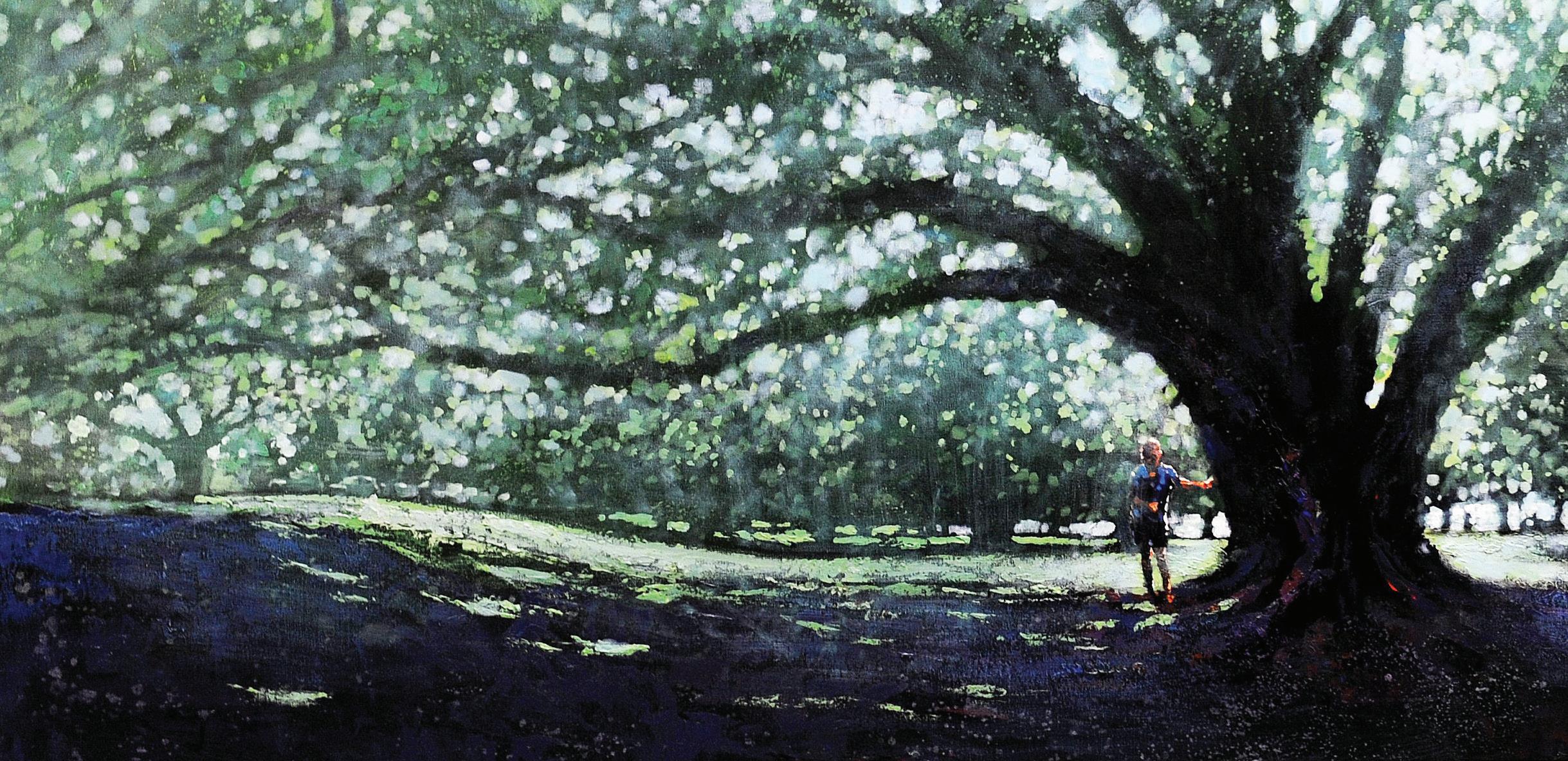





Greta Junior is often referred to as the heart of Fairholme Junior School. It’s a space where the girls come together to learn, collaborate, explore and play.
Co-ordinator of Greta Junior, Mrs Elaine Harris, says the library is more than a collection of books; it is a place that fosters a love for learning, encourages critical thinking, inspires creativity and builds community.
‘When girls are encouraged to read, they develop their language skills, expand their vocabulary and improve their comprehension abilities,’ Mrs Harris says.
‘But more than that, our library is an exciting hub bringing together students, teachers and parents. I like to think of it as the heart of the Junior School,’ Mrs Harris says.
‘The Greta Junior is an incredibly important resource that serves so many purposes beyond reading books. It’s a place where our girls can learn by exploring, build social connections and expand their horizons.’
On Tuesdays we have Chill Out Tuesday where girls can come and read quietly or listen to stories being read via Story Box. Wellness Mondays provide a lunchtime where the Junior girls can interact with the Senior Wellness Committee girls colouring,
chatting and sharing time.
On other lunchtimes the girls can browse in the Investigation Corner, puzzle in our Puzzle area, get hands on in the Interactive zone, read and explore the collection and play games. One of our most exciting new ventures, though, is to launch Lego into our library.
With recently-received P&F funding, the library has purchased kits of Lego for our Collaboratory space. During lunchtimes, the girls will be able to create, make, challenge themselves and collaborate together to construct a wide variety of self-directed and Lego created projects.
All of these initiatives enhance the notion that the Library is at the core, or heart, of our school and that hanging out together builds our
learning community, Mrs Harris says.
‘Modern libraries are no longer physical buildings where books are stored and lent out. Instead, they are dynamic spaces that offer a variety of resources and services to our girls. We have adapted to the digital age by offering computers, e-books, multimedia resources and interactive learning materials as well as providing the more traditional and intimate story time, book clubs, workshops, lectures and other cultural events. You said dinosaurs? We even have some of these with our regular interactive loans from the Queensland Museum.’
Mrs Harris, who has worked at Fairholme Junior for 15 years, says it has been exciting to watch the girls she has taught in Junior School, grow into empowered, compassionate, smart Year 12 girls ready to take on the world.
‘To see students who first started thinking about the wider world when they were introduced to Parvana in Year 6 come back and share with me that they are becoming humanitarian lawyers or the ones who disastrously built bridges share that they are thinking of doing engineering is a gift to a teacher. ‘But seeing the bright, smiling, confident ladies leaving school excited about their future plans is the joy.’
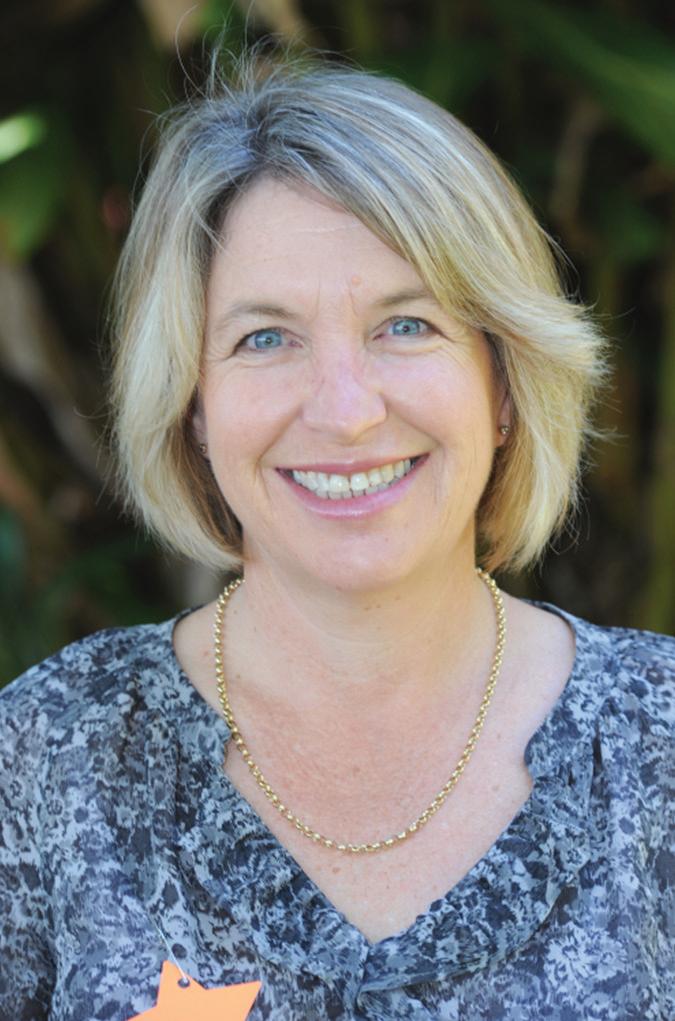
With its cutting-edge technology, diverse collection of resources, supportive staff, and, of course, its enormous collection of books, Greta Junior is a vital component of the Junior School. Co-ordinator of Greta Junior, Mrs Elaine Harris, tells us why she loves this space so much…

In between studying for exams, getting ready for Formal and playing sport, Year 12 student Sienna Green is hard at work rehearsing for the lead role in Footloose, the Co-production with Grammar. Here she tells us how she does it all...
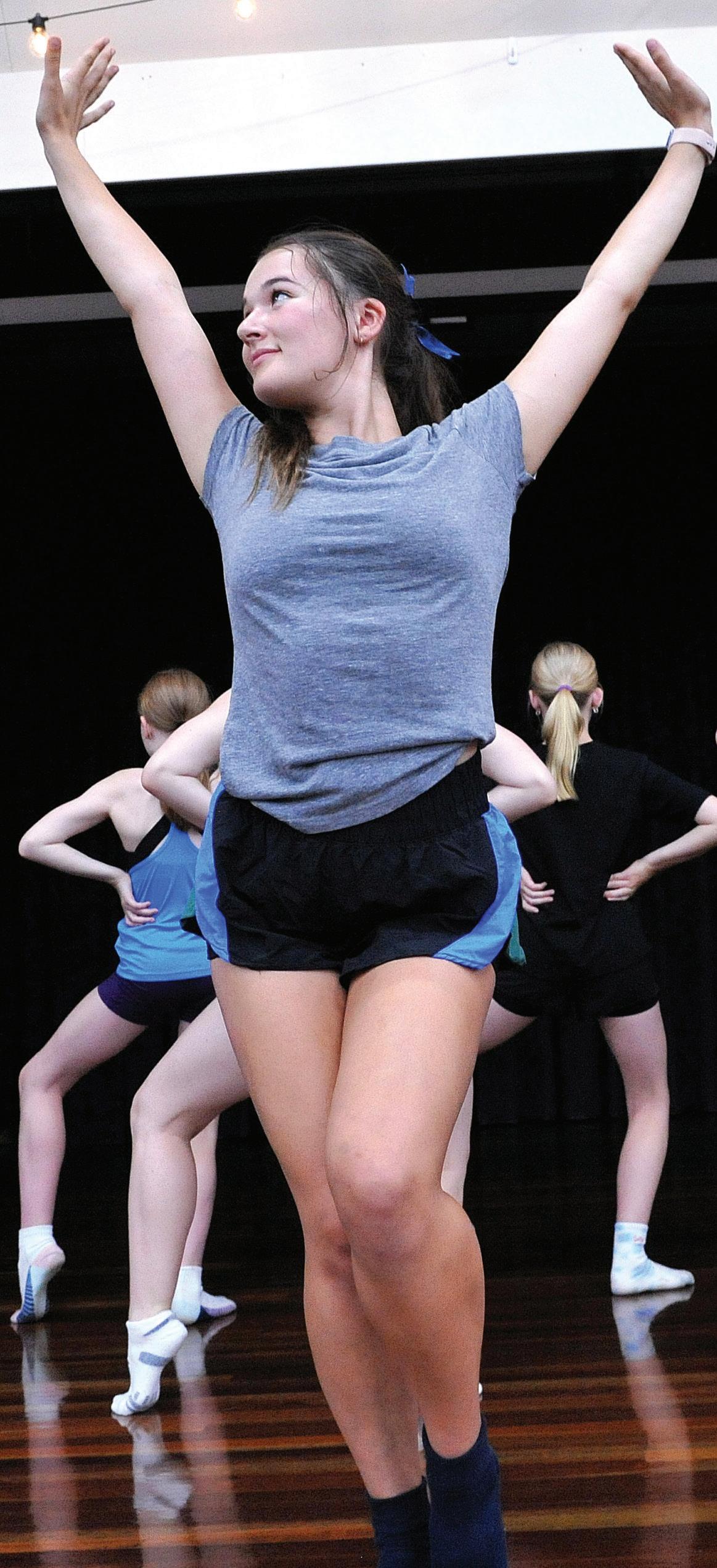
What’s your role in the musical?
I am playing Ariel Moore in the Toowoomba Grammar School - Fairholme College musical production, ‘Footloose!’
Describe your character – how different/similar is she from you?
Ariel is the reverend’s daughter. She is smart and sweet (in front of her father) but also edgy and a little rebellious. Ariel, like many of the characters in ‘Footloose’; struggles with the rules of the little country town in which she lives. Her way of coping is through some thrillseeking behaviours, but things begin to change when the new kid Ren moves to town. Ariel is someone you want to support and cheer on.
I can relate to Ariel in a typical teen way. We both love spending time with our friends, English, and dancing!
How do you get into your character?
Some of Ariel’s scenes are full of energy, fun and bright with big vocals and dance numbers while there are other scenes that are simply heartbreaking. It requires a lot of emotional energy to be in the
depth of the role. Your heart breaks with her.
What’s your experience in theatre, or is this your first role?
This is my first lead role. I was part of the last co-production and a dancer with Fairholme’s dance troupe.
A lead in the musical and staying on top of your schoolwork must be tiring! How do you do it?
The juggle is real! With leadership commitments and studying for Year 12 exams there are a lot of lists, time management and running madly across Daisy Culpin Courtyard to get to different events. My parents and teachers are amazing and help me stay up to date so I can still enjoy all the important events this year.
Tell me about the collaborative experience with Grammar…
It has been a great experience and a wonderful opportunity for students across the two schools to get to know each other. When I did the musical in Year 10 I made a lot of friends and those connections have really helped this year – it’s been like a mini reunion. There is so much creative talent between the schools
and it’s a great chance to make new friendships.
What has been your favourite part of the experience so far?
Getting to work with the other leads has been one of my favourite experiences. Another highlight is seeing the younger students grow in confidence and put their all into every scene.
Talk about the directors, choreographers etc and what they contribute to the musical experience-wise.
The members of the creative team are legends. Chris the director is a TGS Old Boy and studied at NIDA and his experience and guidance has helped me and the cast so much. Mrs Choice is an incredible dance teacher and her patience is admirable. Just wait till you see the choreography! Mrs Hayward, Mrs Evans and Dr Young are amazing and really help to motivate and rally the cast.
Is acting something you would like to do as a career?
I enjoy being on stage whether it is dancing, acting or singing and have had many wonderful opportunities at Fairholme to continue to grow
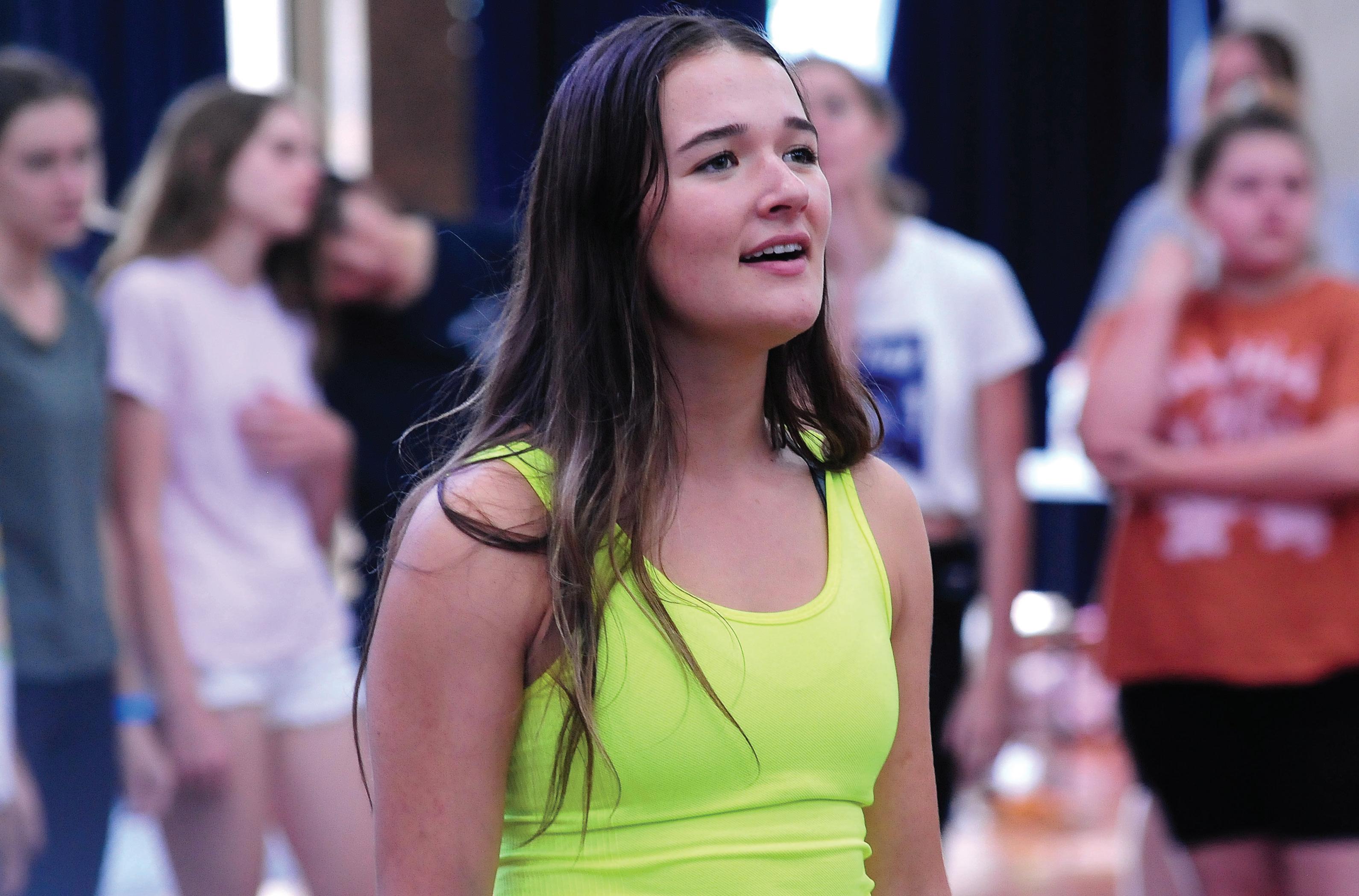
in this field. I am not sure if it’s my career path, but I hope that it plays a part somewhere in my future.
I haven’t completely decided what I would like to do after school, but I really love geography and am looking towards regional development, town planning or environmental science fields at university… that’s probably not what you were expecting.
Have you any mentors at Fairholme, or teachers you look up to?
My main shoutout will go to my English teacher Mrs Hohn, who helped me pick out my audition pieces, so when I found out about the role she was the first person I told and she was possibly even more excited than me. Ms Butlin, who never fails to make me laugh
in our meetings even about the most random things has provided me with countless moments of guidance and advice.
I have been at Fairholme College since Kindy and from then to Year 12 I have been surrounded by so many incredible teachers who have helped me become the person I am today.
What are your favourite aspects of schooling at Fairholme?
My friends (many of whom I have known since Junior School), our wonderful Year 12 cohort and the friendships I have formed with girls from different grades.
I enjoy school and being encouraged and challenged in my learning. Fairholme has always been a place where I have felt respected and heard.
What is the Interact Club? Interact is the younger sibling version of the Rotaract club, that essentially aims to teach young people about leadership and the value of service. In terms of what this looks like at Fairholme, there is an Interact board for seniors which initiates and engages in activities across the college that focus on both raising funds and also donating time to key organisations while simultaneously underlining the purpose behind such.
What are your positions in the Interact Club? Izzy is the president of the board as well as Service prefect and Georgia the vice-president.
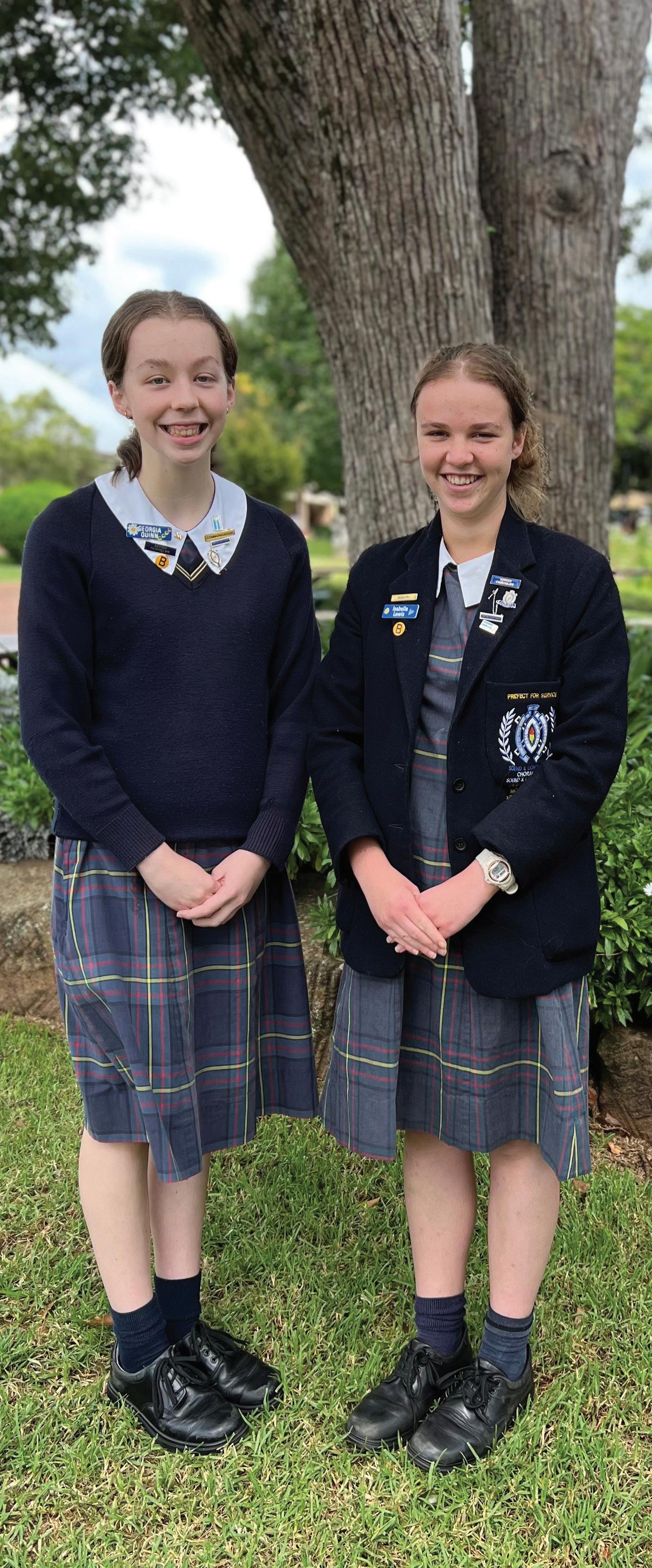
Why did you join the Interact Club? We’ve really appreciated and valued what Interact has done in the past, as well as having been inspired by past presidents. We think it is important to continue those traditions and take advantage of such a wonderful platform that has been provided to us!
How many team members are there in the Interact Club? This year we have 13 members, but this looks different every year!
What are some of the projects you are looking forward to the most this year and why? While we’re still in the planning stage of the year ahead, we’re both really looking forward to Shave for a Cure, which is always a big and exciting event with a really important purpose. We’ve also already put on the Valentine’s Social to raise money for our sponsor children, as well as organised various activities for International Women’s Day across all three sub schools, simultaneously raising money for Protea Place. Both of these events were a great success!
Why do you like giving back to the community? We both find service really important and enjoy seeing the impact this has on the community and also on us. Having the opportunity in the first place to have a platform is important to take advantage of.
Is service something you would like to continue? Definitely. Both of us are interested in joining Rotaract into the future (Izzy would like to be to be a lawyer and Georgia, a teacher.)
Kowanyama means ‘place of many waters’ in the Yir Yoront language. In the Barumggam language, Toowoomba means ‘the swamp’. Two places 2100km apart, but both mean home to five of our Boarders
A group of girls gathers in Daisy Culpin Courtyard getting ready for dinner in the Dining Hall. On the menu tonight is Butter Chicken, a favourite amongst the Boarders. ‘I love Joe’s Butter Chicken!’ says Janae Mango.
Janae, along with Tilayla and Tisharni Josiah and Kayla and Yas DanielStafford, hail from Kowanyama – 28 hours and 2100km away. Distance means there are no visits home during the school term. And, whilst the girls each have their own stories and backgrounds, they are united in the common experience of being away
Kayla can’t wait to sleep in her own bed, Yas is looking forward to waking up whenever she wants, Tisharni is excited to see her family and pets, while Janae and Tiayla are both planning on fishing and camping.
‘I can’t wait to eat the salty plums from home, seeing my family, just being in the bush, being able to go camping and fishing. Just all the normal stuff from home,’ Tilayla says. Acting Deputy Head of Boarding, Mrs Kylie Wallis, said, ‘like many of our boarders, the girls fom Kowanyama struggled with being away
activities like sport and art that helped her feel more connected to her new environment. ‘I still miss home,’ Yas says, ‘but I also love my friends here and all the things we do together. Plus, my sister is here, so when I get really homesick, I go and hang out with her.’
Similarly, Kayla missed the landscape of her community. ‘I miss seeing the stars at night and going to the river near our community,’ she says. ‘But now I’ve made friends here, and my sister is here, so when I feel like I am missing my home, I go and see her or I go for a walk outside with my friends.’
from their families.
They have learned to navigate the challenges of school life and homesickness, and in doing so have forged new friendships and discovered their own strengths. They have come to realise that this far-off place – the Fairholme Boarding House - has become their home away from home, a place where they belong.
As the term is drawing to a close, the girls are getting excited about going home.
from home, missing the familiarity of their community and the comfort of being surrounded by family and friends. However, over time, the girls began to form close bonds with their fellow students and the staff at the Boarding House, creating a sense of community and belonging that helped to ease their homesickness.’
Yas and Kayla shared their experiences of adjusting to Boarding School. Yas initially found missing her family and her community difficult. However, over time, she began to form great friendships, participating in
As the term comes to an end, they are excited to return home, but also grateful for the experiences and if homesickness kicks in, the girls find busying themselves in the plethora of activities in the Boarding House helps. Every weekend, there are craft afternoons, excursions, sporting opportunities and a host of other activities the girls can participate in.
The Fairholme Boarding House has become a place where these girls feel a sense of belonging, and they have learned to overcome homesickness by forming strong bonds with their fellow students and staff.
From Fairholme to their Kowanyama home, one thing is for sure – the girls are looking forward to seeing their family and friends these Easter holidays.
‘I can’t wait to eat the salty plums from home, seeing my family, being in the bush and going camping and fishing...’

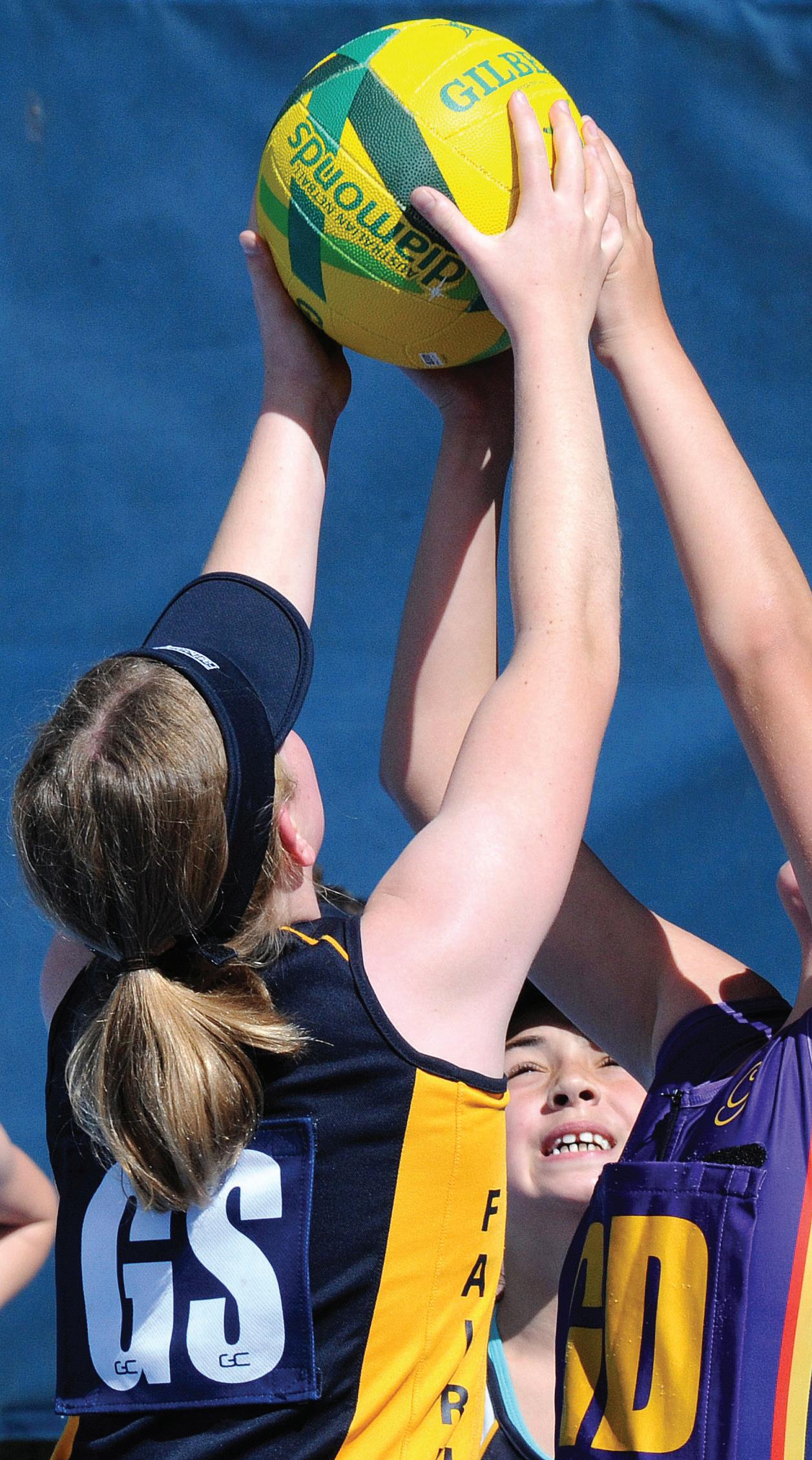
With its fast-paced nature and emphasis on teamwork and communication, netball has become a favoured sport amongst Fairholme girls
Netball is a popular sport among girls at Fairholme College, and this year, we are excited to announce that we have 29 teams competing in the local netball competition, an increase from 27 teams last year.
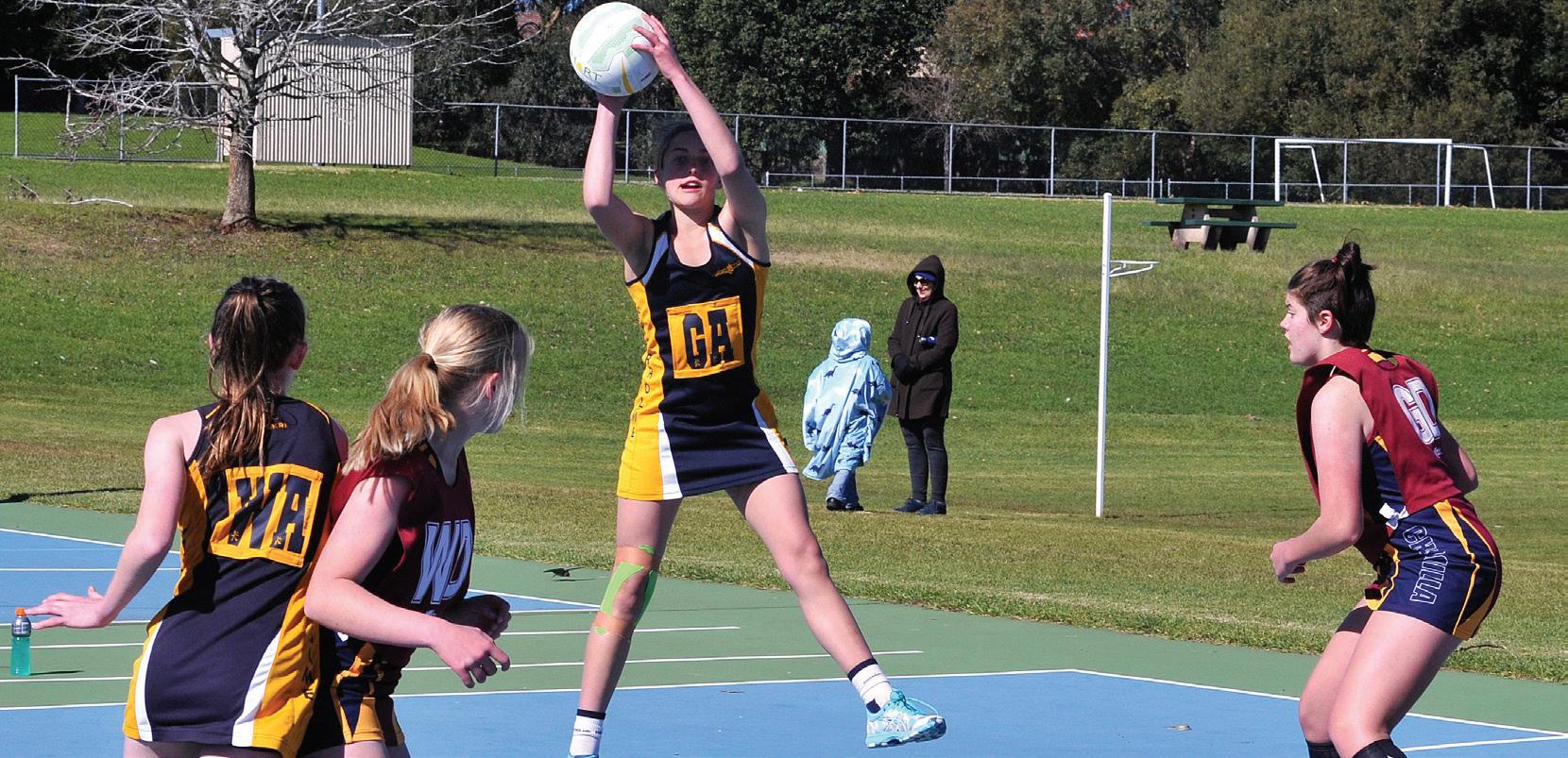
This means we have about 280 girls from Year 2 to Year 12 participating in the sport.
A series of nomination days took place in early February, and a panel of three coaches evaluated the girls through a trialling process.
Performance, Kirsten Murry, says the teams are carefully constructed, considering the age, grade, skill level, and previous experience of each player.
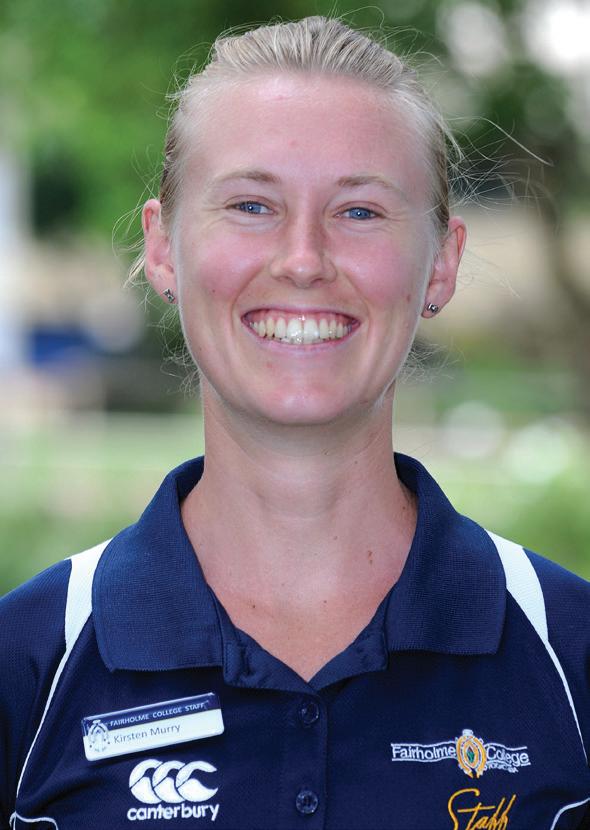
‘Our aim is to ensure that every girl has the opportunity to develop their skills and enjoy the sport, regardless of their ability.’
The first games of the season, a double-header,
will take place on the first weekend of Term 2 (22 and 23 April), with no games on the Labour Day long weekend.
We are excited to see our teams compete this season and look forward to seeing the growth and development of our players as they work together to achieve their goals.
The Opening Night Concert earlier this month featured the incredible talents of our girls in The Fairholme Arts. Congratulations to everyone who participated in the evening’s entertainment!
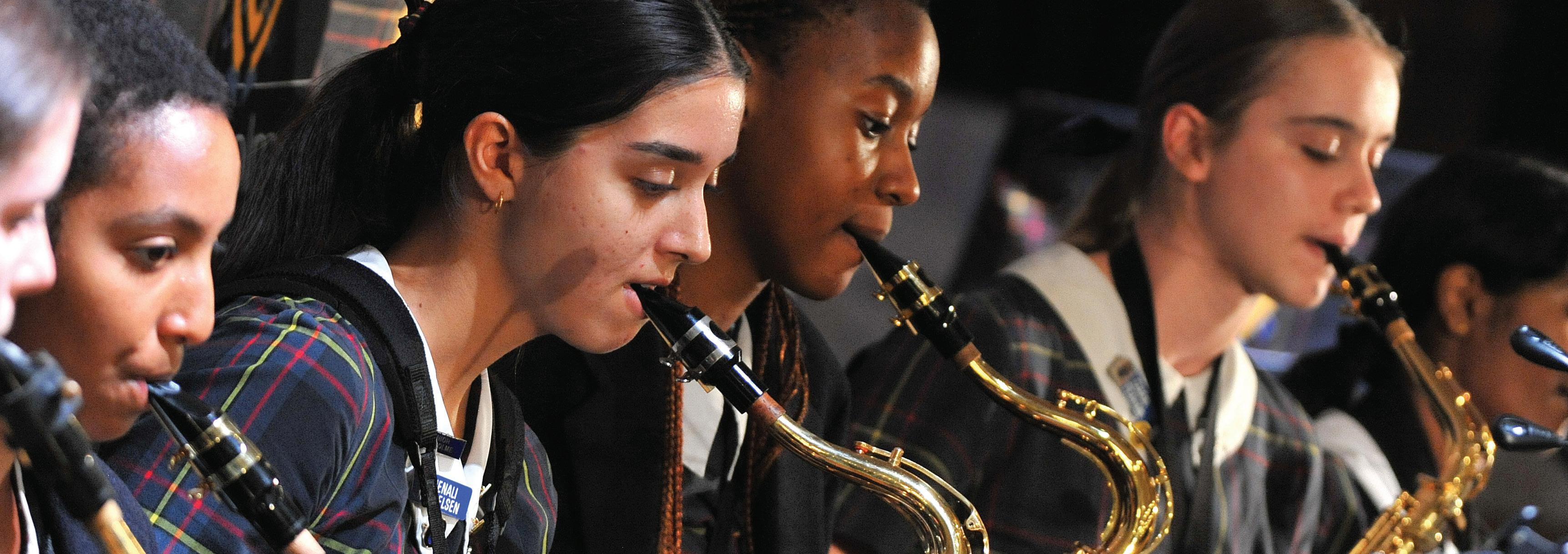
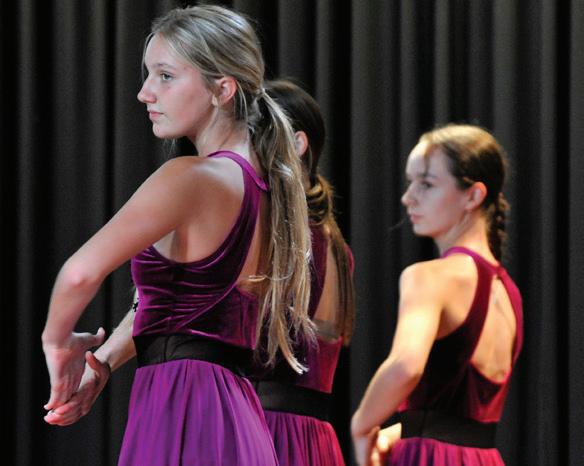

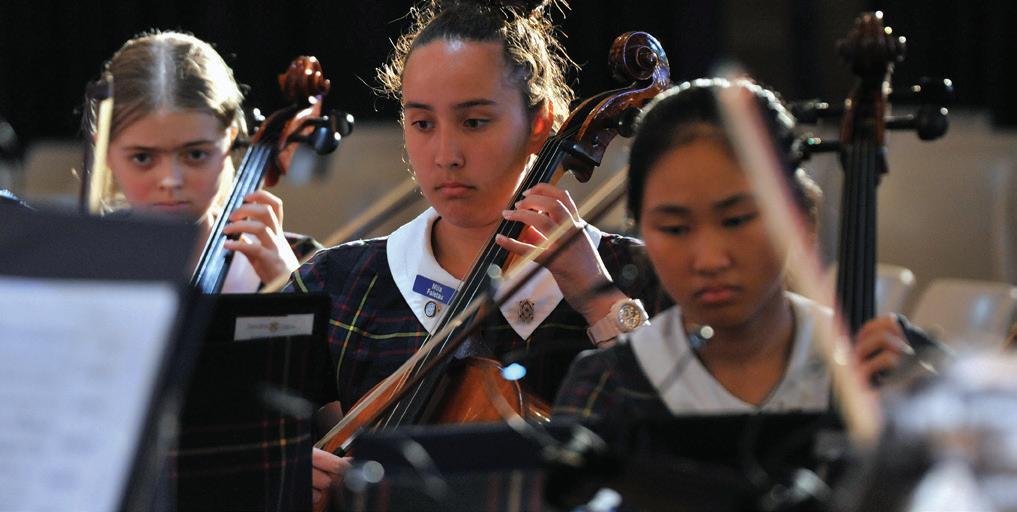
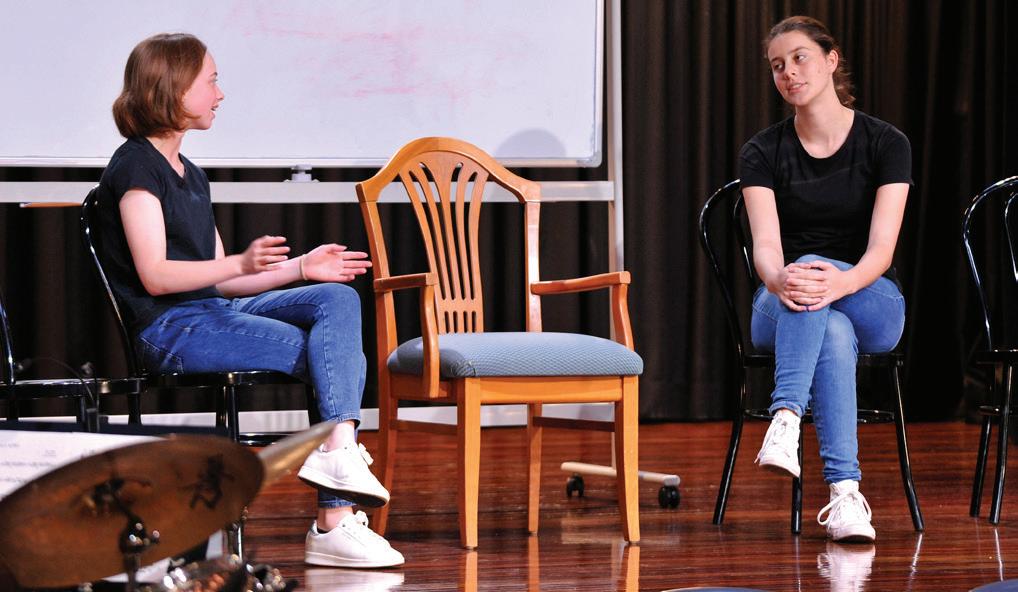
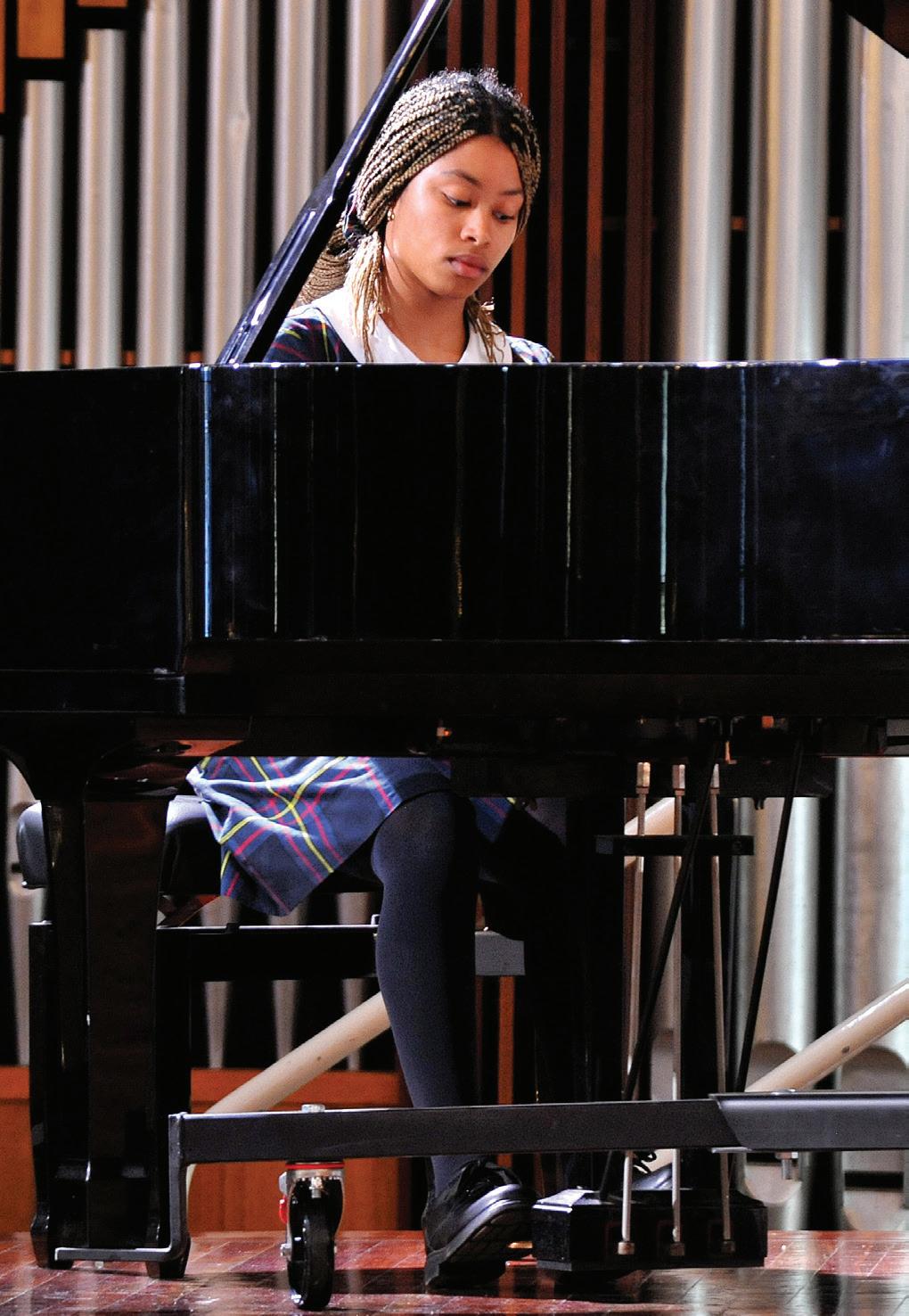

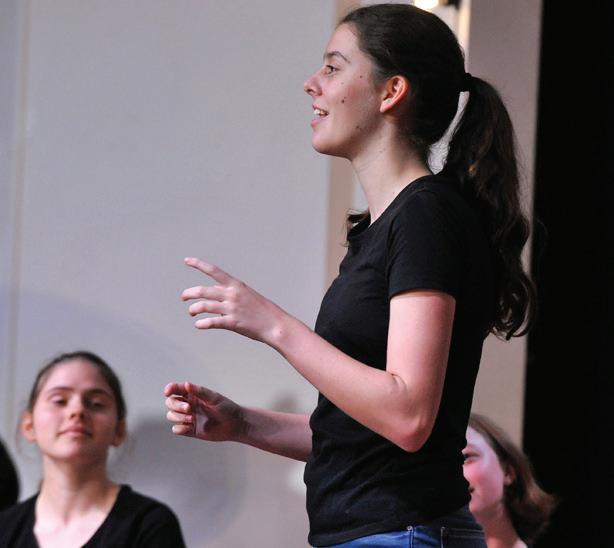
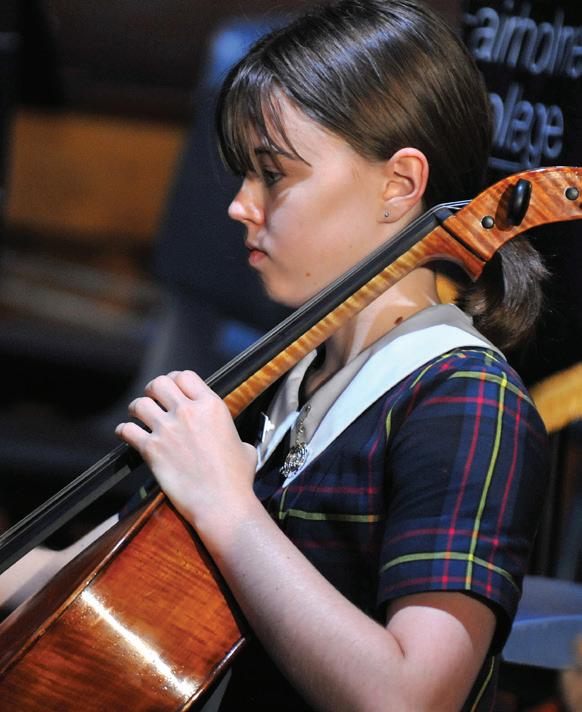
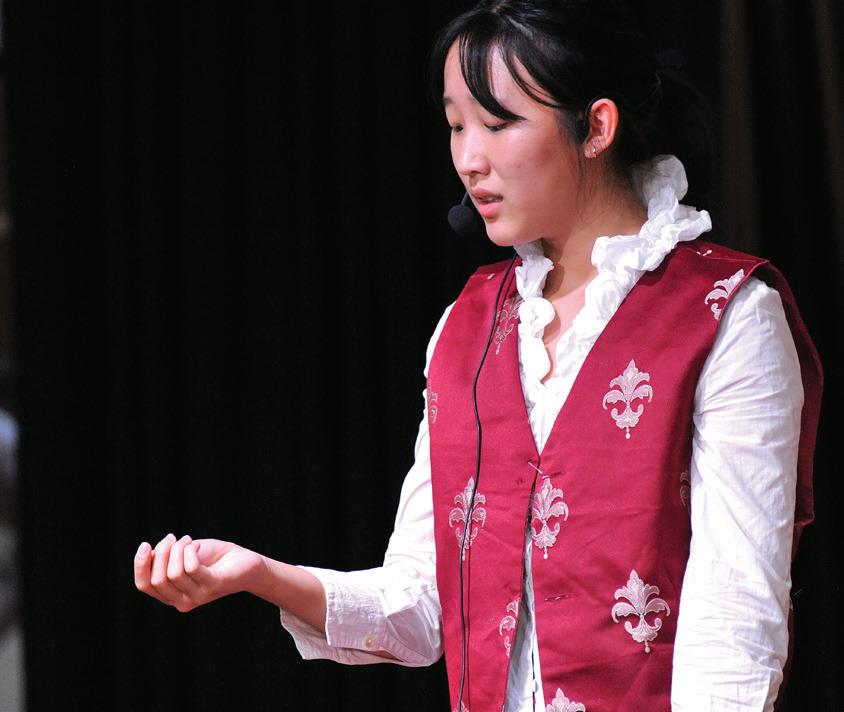
At just 14 years old, Mackenzie Grimes is making big waves in the swimming pool.
Mackenzie recently broke the 50m, 100m, and 200m backstroke records at the Darling Downs Swimming trials.
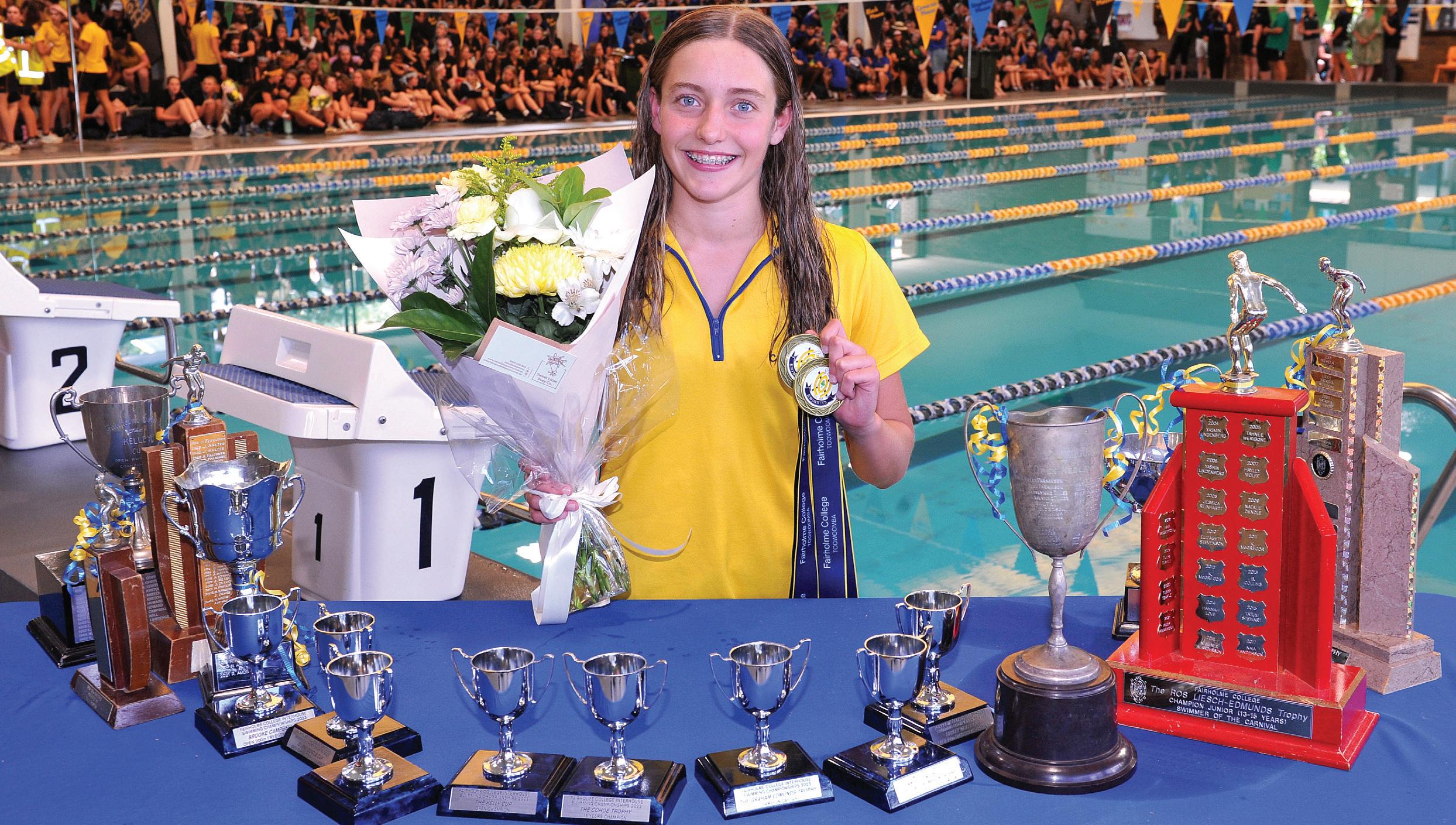
‘I also broke the 50m backstroke record at our school swimming carnival and the 50m backstroke record at the Toowoomba
Secondary School Swimming carnival,’ Mackenzie said.
Her love for swimming started at a young age when she began taking lessons at her local swimming pool. As she grew older, she developed a passion for backstroke.
‘I love all swimming disciplines, but backstroke is by far my favourite
because I feel really comfortable doing it and I’ve achieved some great results with it.’
One of Mackenzie’s biggest inspirations is Kaylee McKeown, who won gold in the backstroke at the Tokyo Olympics. Watching Kaylee compete and achieve such success has motivated Mackenzie to work even harder towards her own goals, she says. Her training schedule is rigourous, with eight sessions a week, but she remains dedicated and committed to achieving her dreams. Recently, Mackenzie was presented with Lisa Curry’s daughter’s swimsuit, which she says was a touching gesture and a symbol of the support she has
received from the swimming community.
‘I got quite emotional when Lisa presented me with the swimsuit. I wasn’t expecting it at all, and it would have been so sad for her to give it away.
‘It is currently hanging in my wardrobe, but we plan to have it framed so I can hang it on my wall.’ Mackenzie’s ultimate goal is to make it to the top three at nationals, and she is determined to make it happen. She knows she has to put in a lot of hard work and effort but is confident in her abilities and is excited about what the future holds.
‘I’m hoping that I can one day represent Australia,’ she says.
A big thank you to our P&F Association for treating the girls to donuts on International Women’s Day
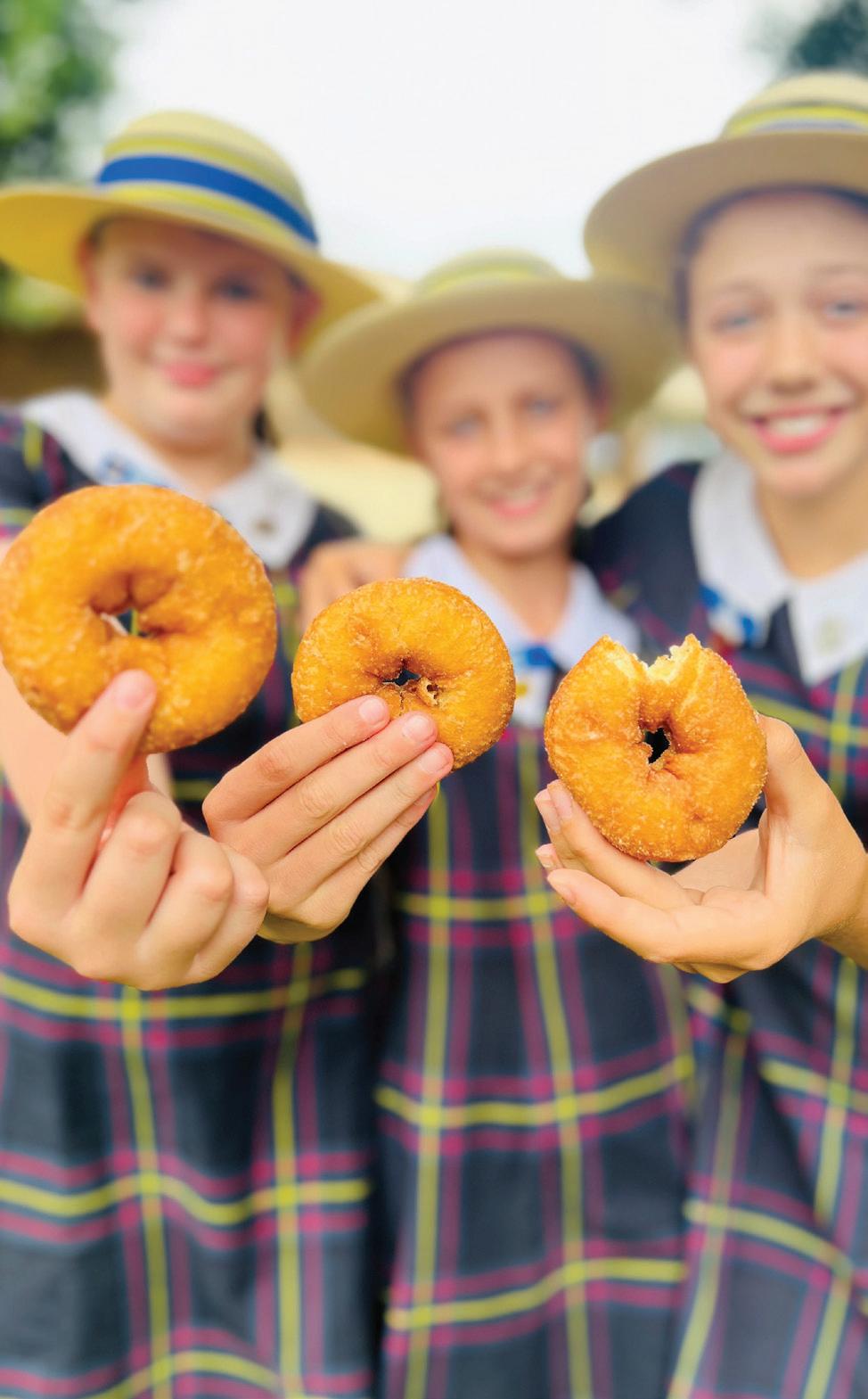
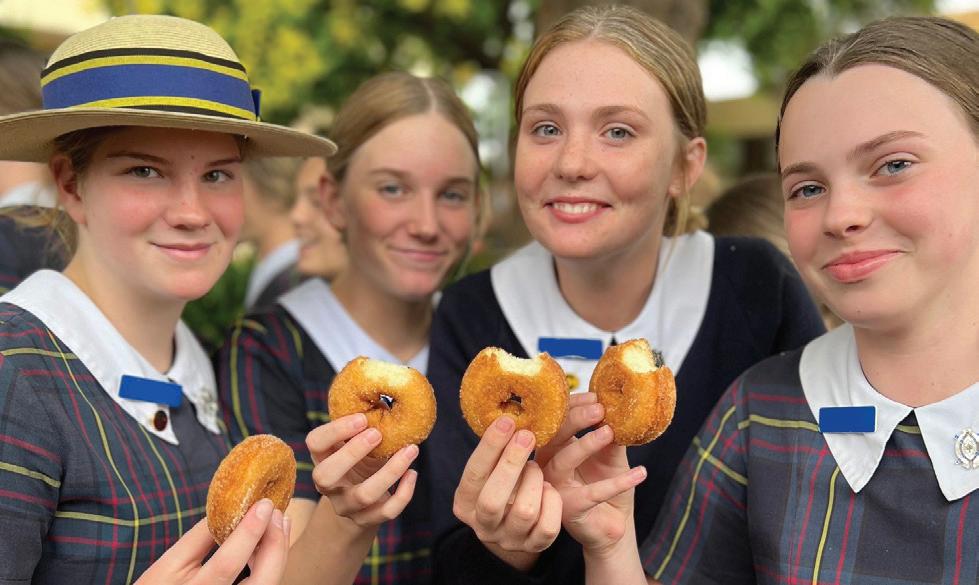

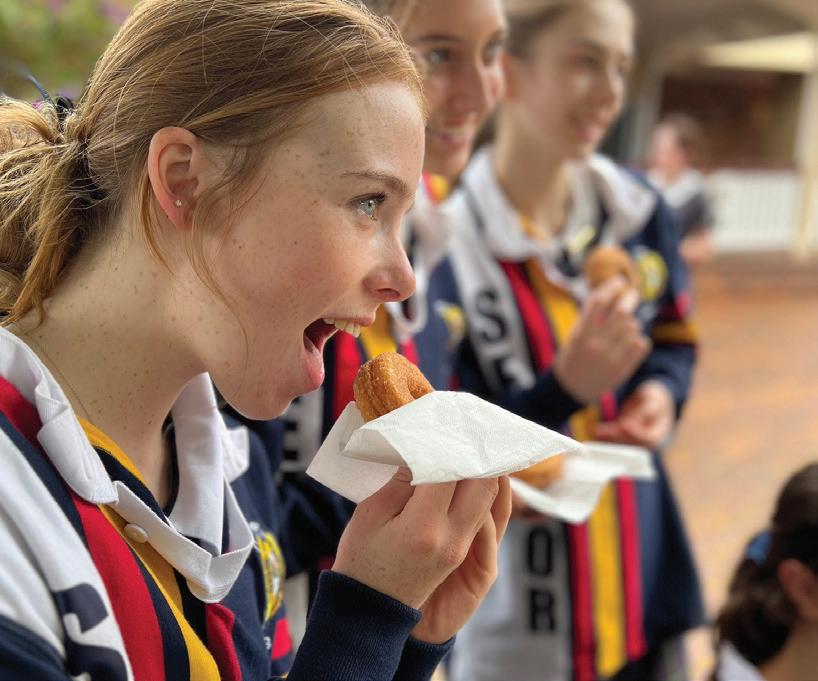

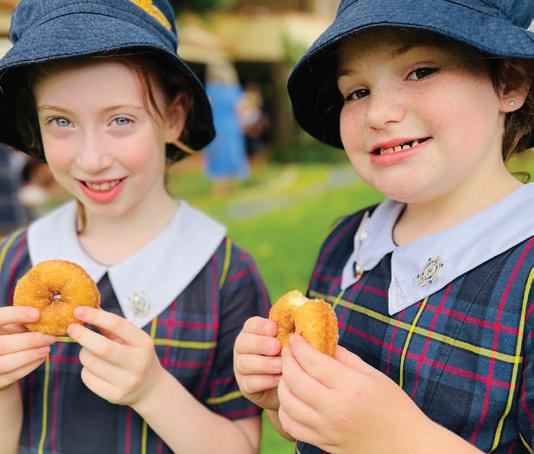
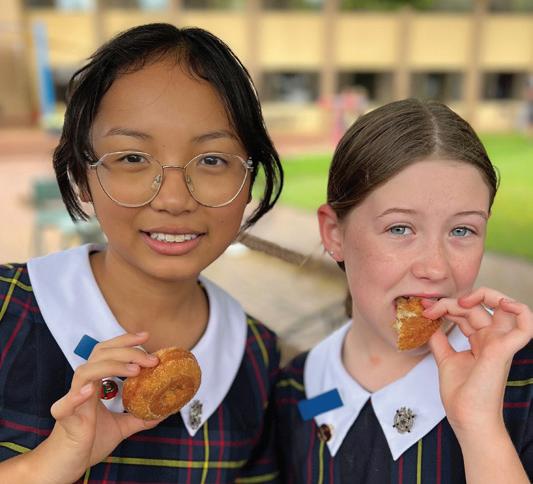

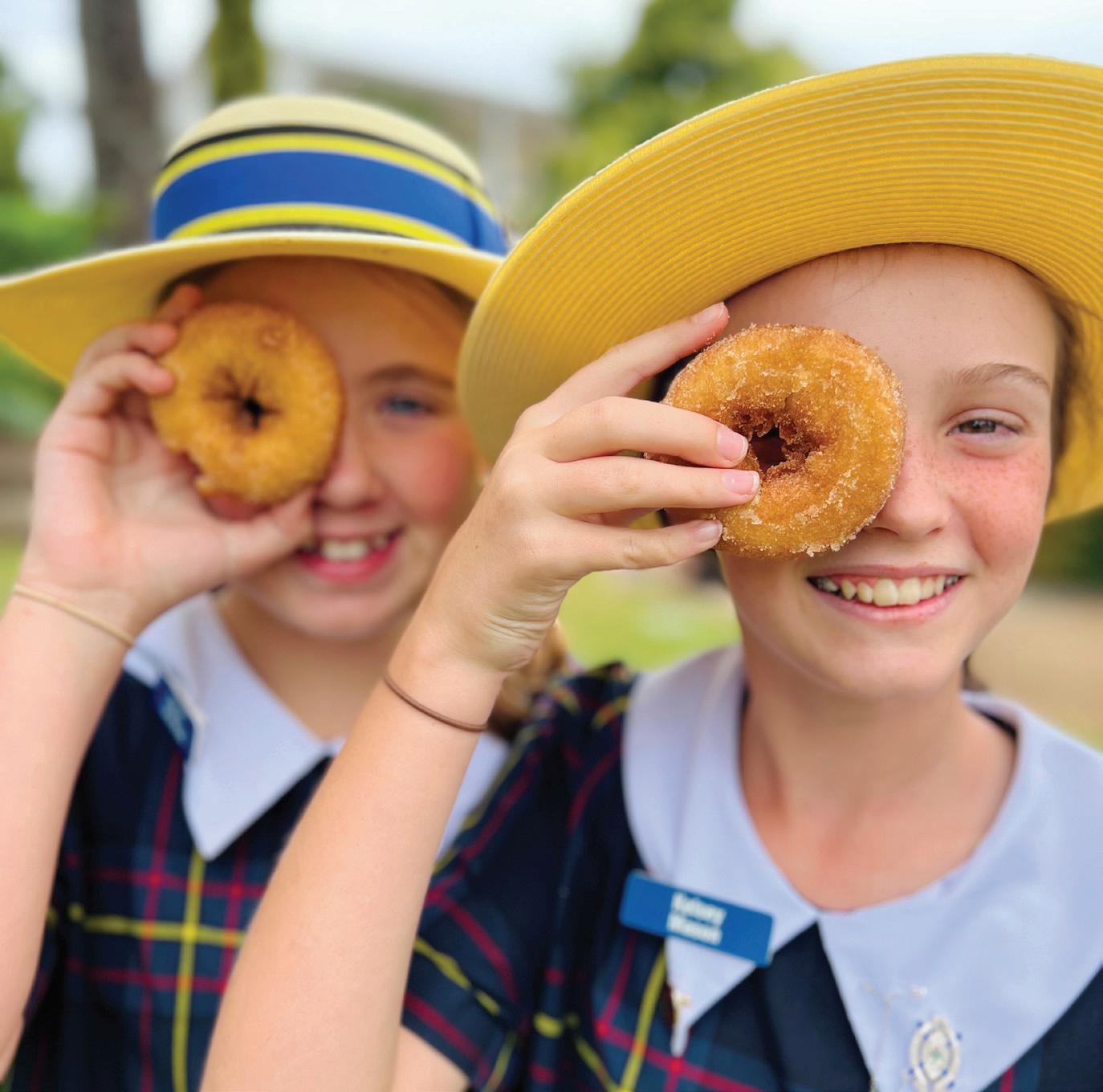
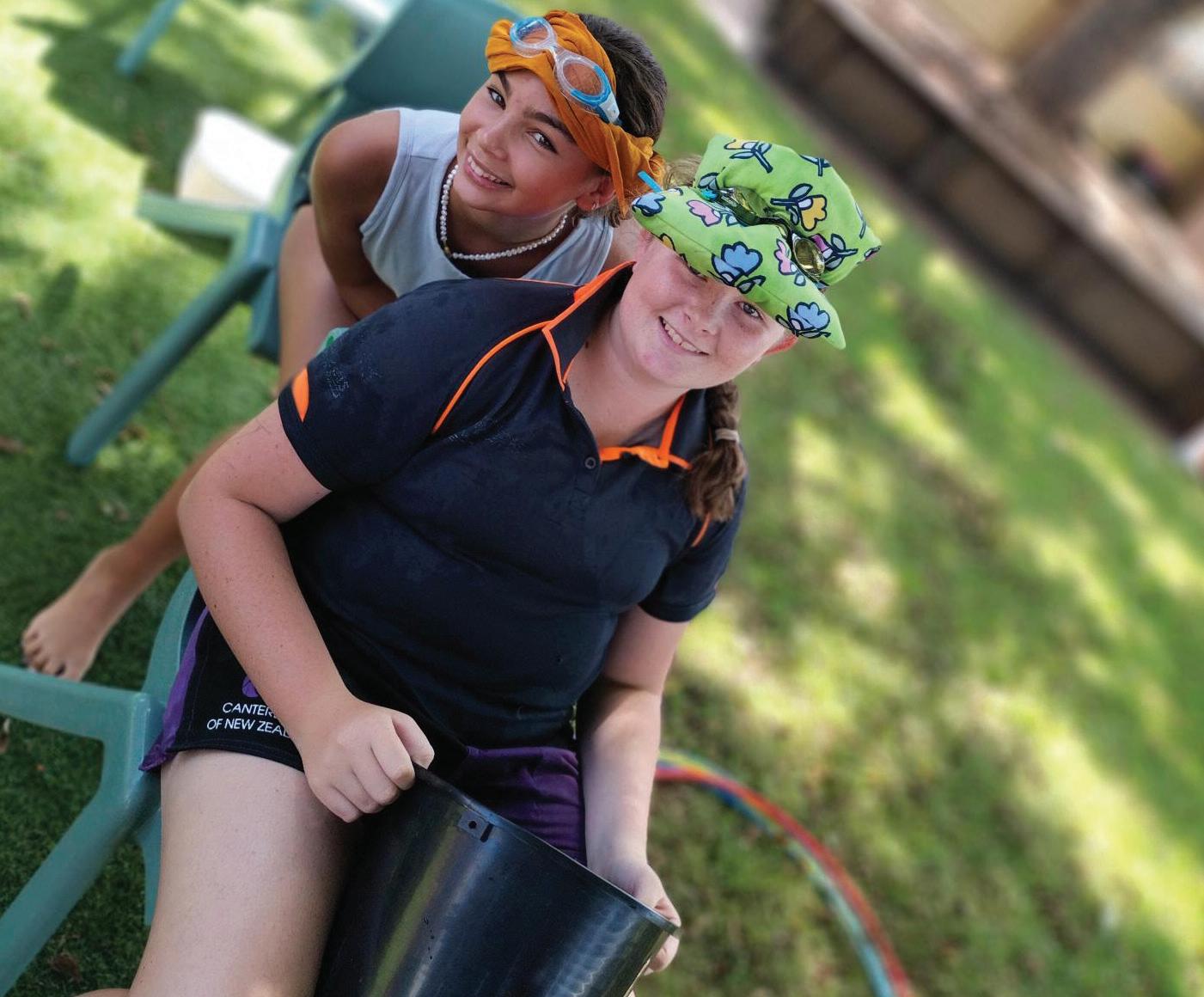

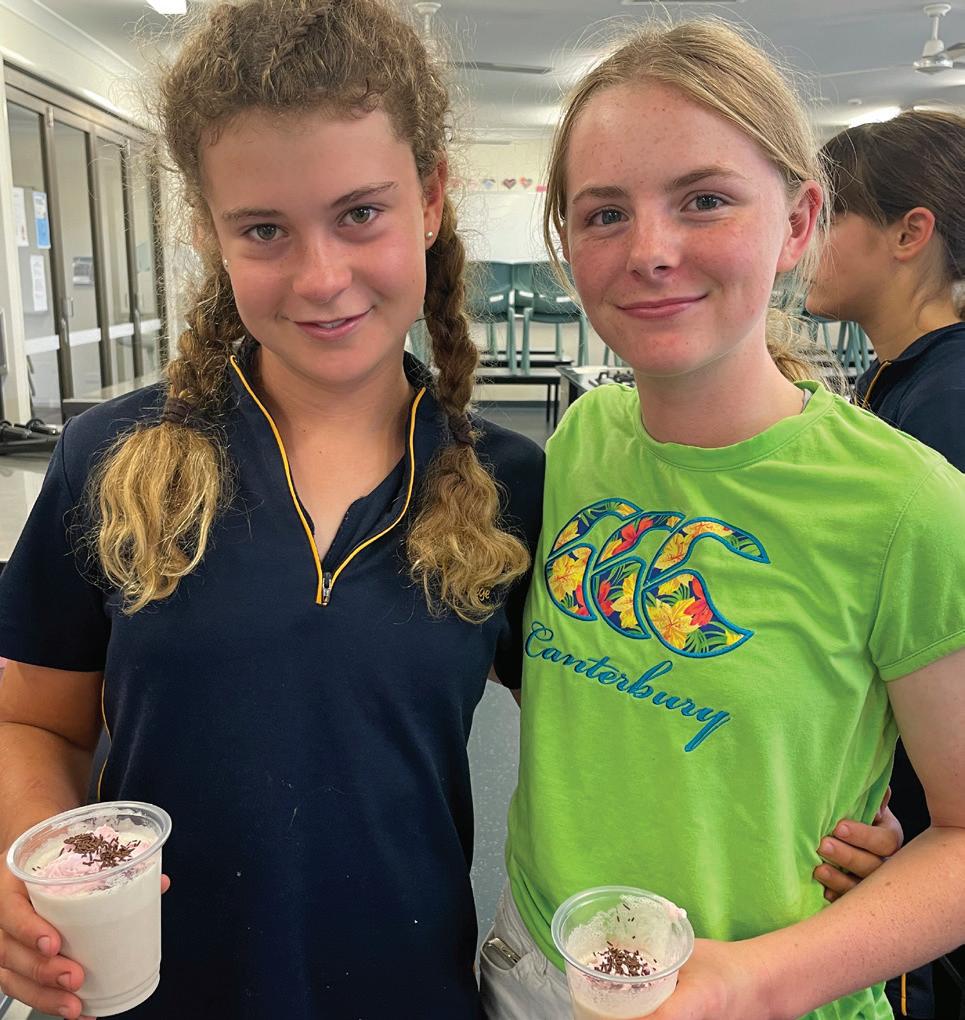

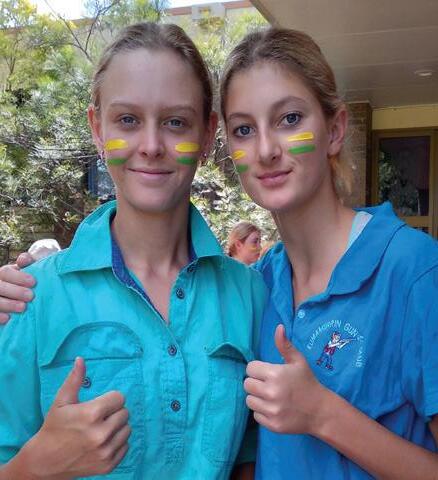
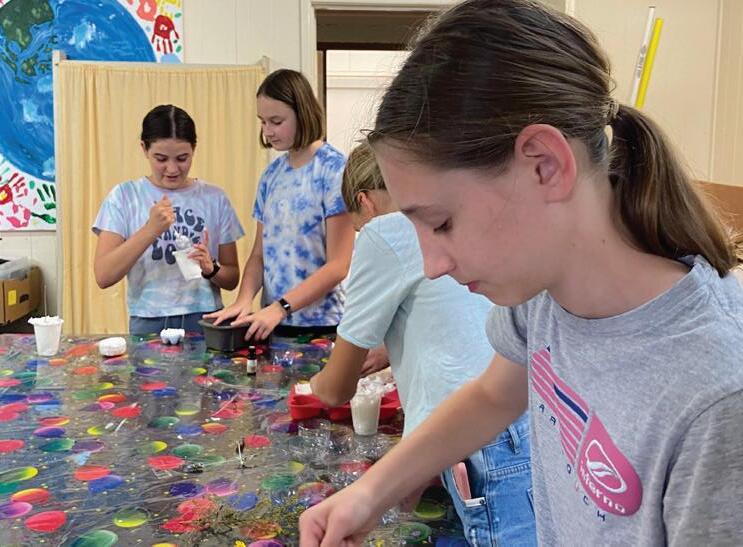
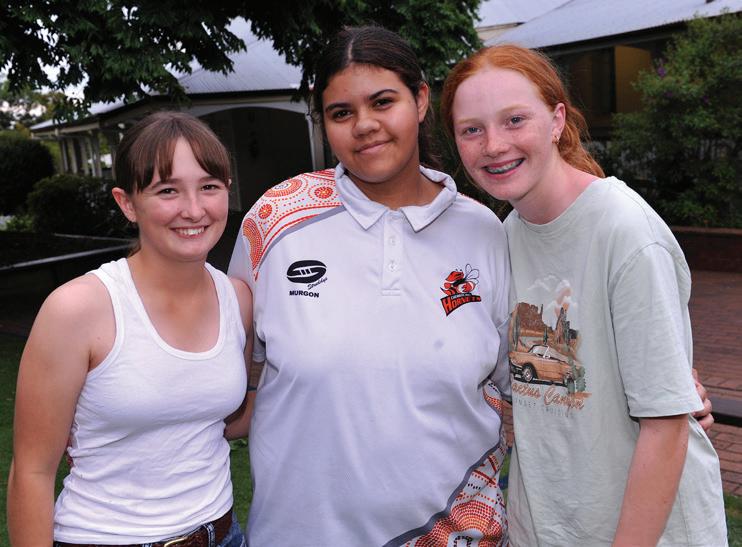
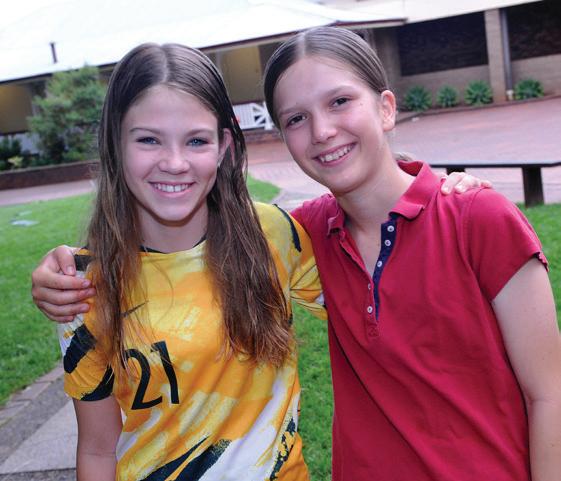
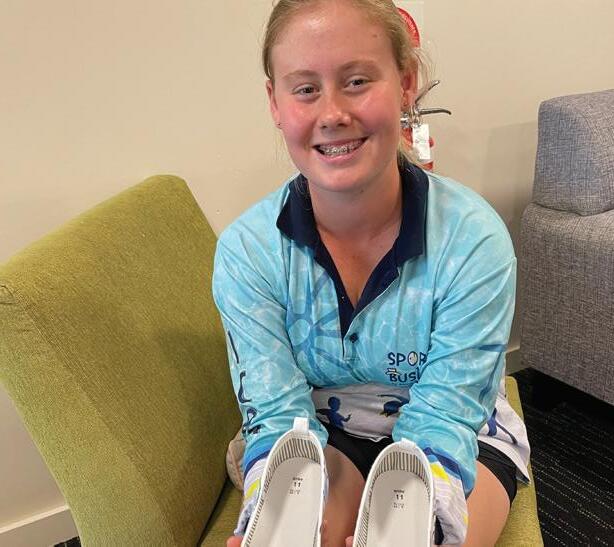
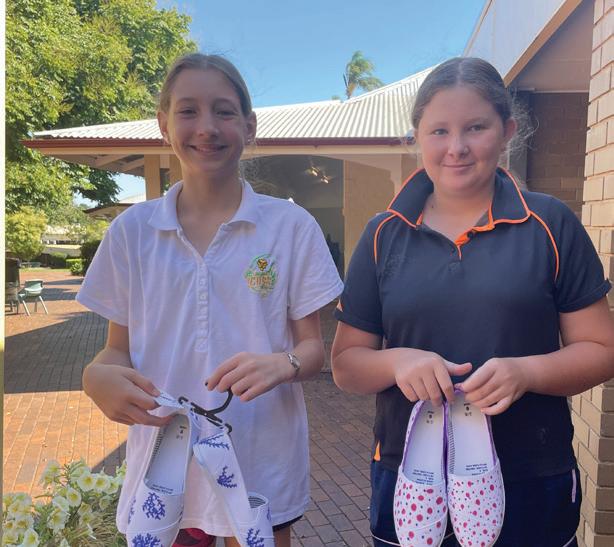
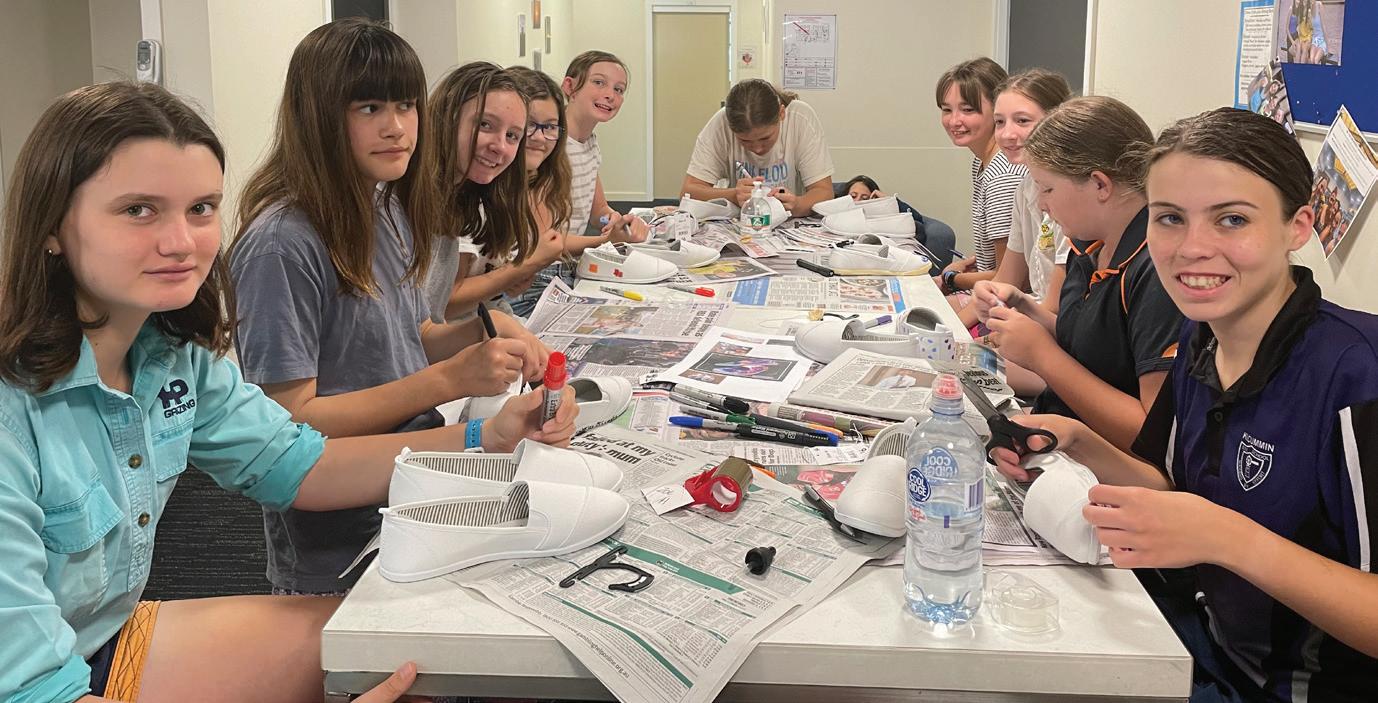
29 March Year 9 Mother Daughter Breakfast
29 March Year 9 Gabfest
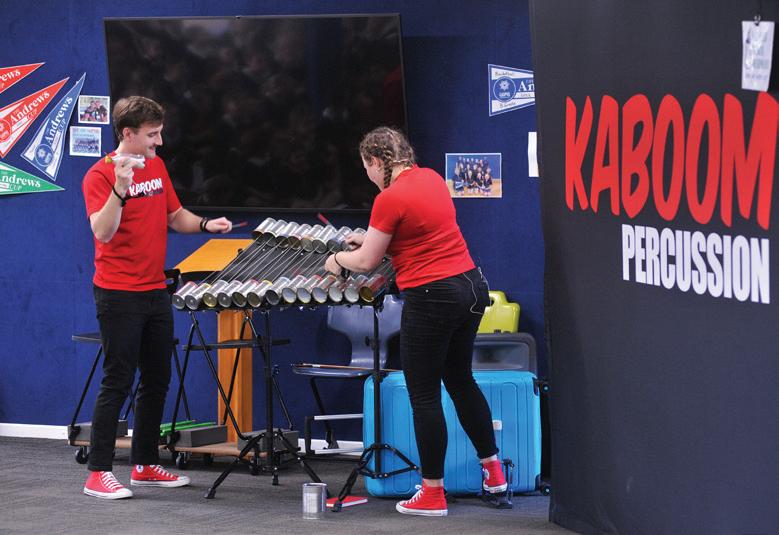

29 March Fairholme Formal
29 March Term 1 Concludes
31 March Toowoomba Show Holiday
18 April Term 2 Commences
19-21 May FACETS Art Exhibition
1-2 June Footloose Musical
9 June Interhouse Athletics Carnival (Kindy-Year 6)
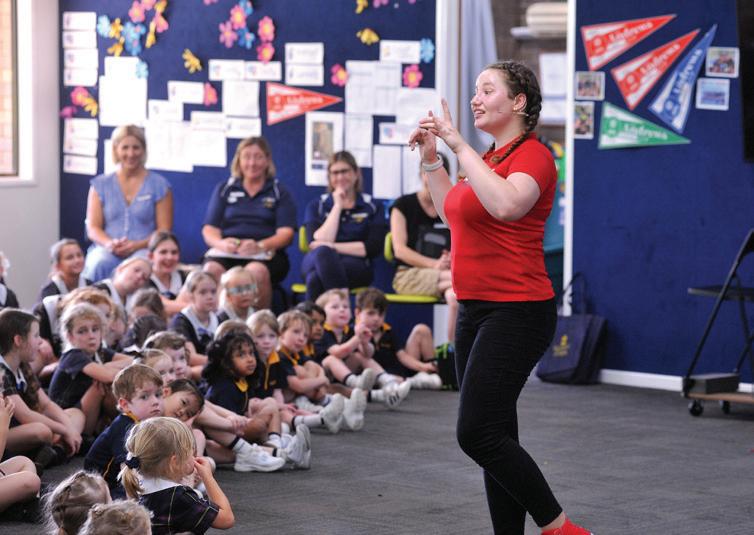
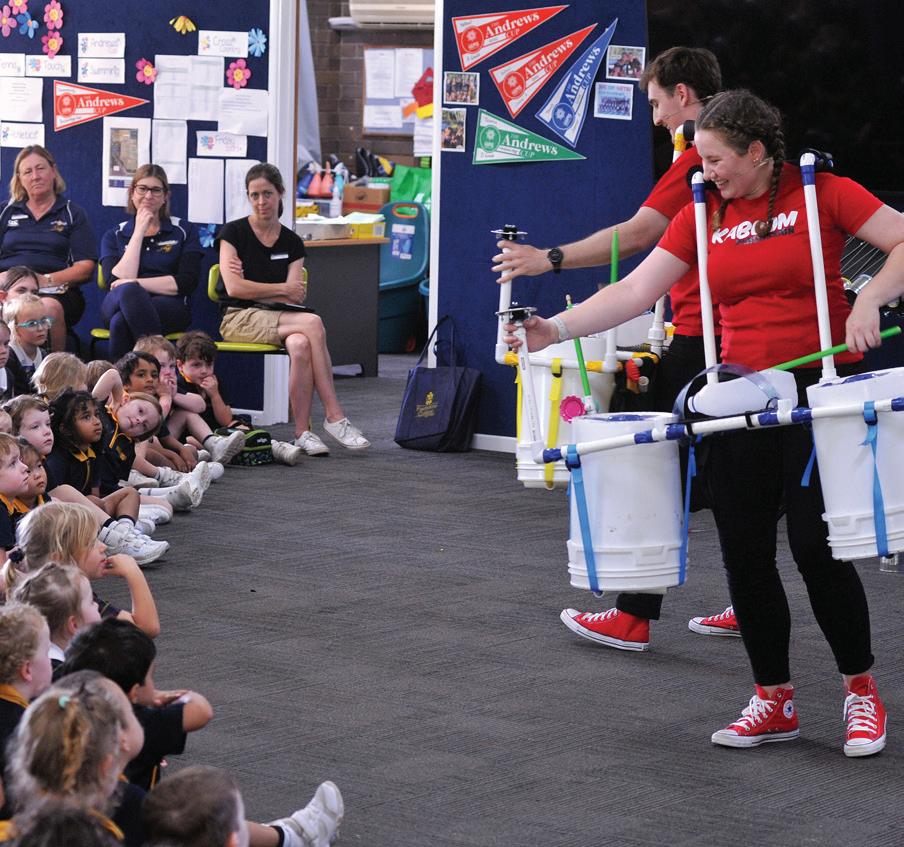
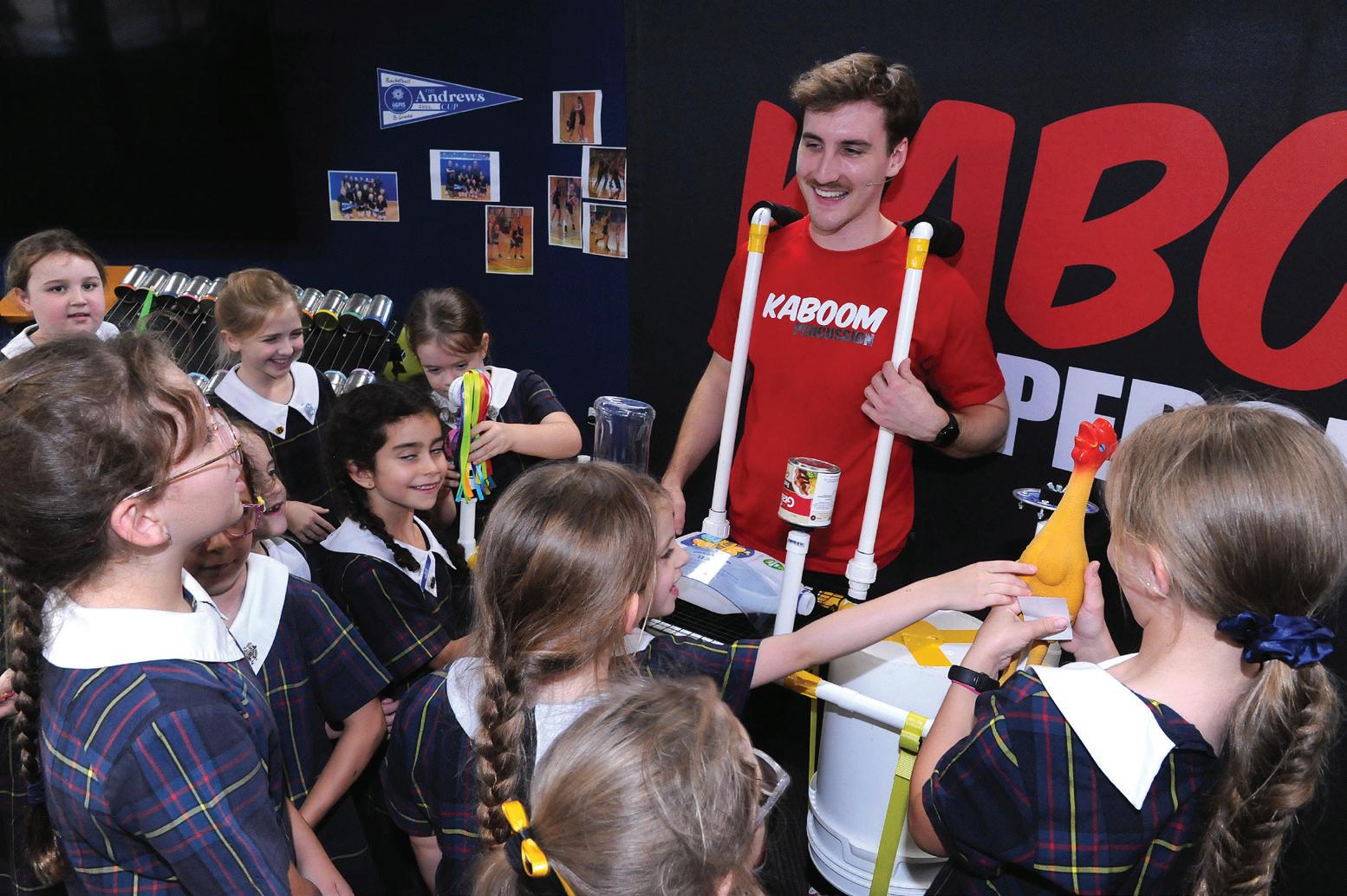
15 June Term 2 Concludes
